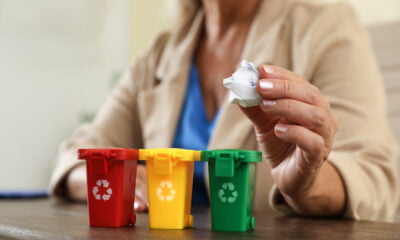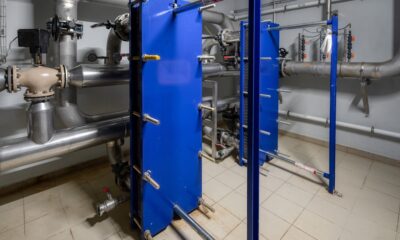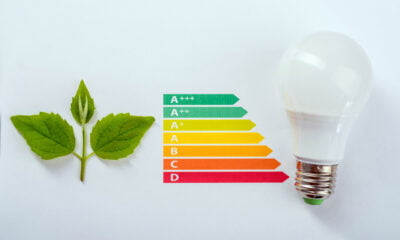

Environment
Businesses Missing Out On £4 Billion Waste Mine According To New Report
Leading resource management company, Veolia, have today released a new report, Imagine 2050, highlighting the innovative business models needed in three sectors to meet resource and waste challenges between now and 2050.
The manufacturing, pharmaceutical & chemical and food & beverage sectors generate a waste mine of around 13 million tonnes, which if properly re-used, recycled or re-manufactured could generate £4 billion of value that is currently ‘hidden’. These three sectors are strategically important for the UK economy.
Veolia’s report highlights the wide range of challenges including population growth, pressure to reduce carbon emissions and utilising technology advances to shape resource use in these three sectors.
It reveals how business models and operations can be re-engineered and redesigned by 2050 so that products and manufacturing processes are completed by closing the loop. By generating energy from renewable sources and no longer treating water as a cheap commodity, but a valuable resource, businesses will become more self-sufficient.
Estelle Brachlianoff, Senior Executive Vice-President, Veolia UK and Ireland, explains:
“The £4 billion hidden value of unutilised resources in these industrial sectors is not something we can ignore. Realising this value has a double windfall – it helps businesses manage their resources more efficiently, and generates new revenue streams.
Long-term planning, minimising waste and more effectively using water, energy and raw materials will help us meet the changing needs of a growing population in a sustainable way.
“Adopting the innovative business models outlined in Imagine 2050 needs to happen now. Long-term planning, minimising waste and more effectively using water, energy and raw materials will help us meet the changing needs of a growing population in a sustainable way. This is at the heart of the circular economy and in Veolia’s DNA.”
To meet these interlinked challenges, the report highlights priority changes and innovations in each sector.
Food production cost pressures will bring about major changes across the food and beverage sector, with companies needing to reimagine the by-products currently thrown away with around £460 million of unutilised resources. New technology will enable better use of energy for the sector and help minimise costs. Although what we eat may not change, where it comes from will be radically different, with cultured meats and insects playing a greater role in our diets. Our emotional investment in food products will be deeper – purchases will be about relationships and trust.
“We’re already growing enough to feed the future world. We just don’t feed people with it. We don’t need to grow more stuff; we just need to stop throwing away the edible stuff that we do grow.” Dr Steve Evans, Director of Research, University of Cambridge
Manufacturing businesses can benefit from £2.8 billion of hidden value in unutilised waste streams by generating, using and recovering energy and water resources and being closer to raw materials to secure supply chains with. By 2050, waste materials will be turned into tradable commodities, potentially enabling 100% recovery rates. Nanotechnology and 3D printing will be embedded into supply chains, enabling more flexibility with production and more efficient use of resources.
“Meeting humanity’s rapidly growing consumption needs, with finite resources on a planet that is already under stress, requires more than greater resource efficiency. With three billion new middle class consumers anticipated by 2030, new business models must be explored if we are to continue to thrive.” Dr Nick Voulvoulis, Reader in Environmental Technology, Imperial College London
Businesses in the pharmaceutical and chemical sector have around £800 million of hidden value in unutilised resources. Designing efficiency into products at a concept stage and new dynamics, including new financial models, will enable medicines to be produced more efficiently. A move to individually treating patients rather than illnesses could also become possible, whilst 3D printing technology could enable the production of drugs on a mass scale at a local level.
“We’re likely to see greater collaboration between these specialist businesses and also with outside partners. Brands like Google are already moving into this space.” Dr Linda Hilton, Innovation Process and Business Consultant.


 Environment12 months ago
Environment12 months agoAre Polymer Banknotes: an Eco-Friendly Trend or a Groundswell?

 Features11 months ago
Features11 months agoEco-Friendly Cryptocurrencies: Sustainable Investment Choices

 Features12 months ago
Features12 months agoEco-Friendly Crypto Traders Must Find the Right Exchange

 Energy11 months ago
Energy11 months agoThe Growing Role of Solar Panels in Ireland’s Energy Future





























